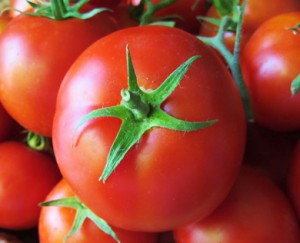CSIR-CRI calls for investment in tomato research
 The Crops Research Institute of the Council for Scientific and Industrial Research (CSIR-CRI) has called on the Government to allocate more funds to tomato research to create varieties that will withstand the dry season.
The Crops Research Institute of the Council for Scientific and Industrial Research (CSIR-CRI) has called on the Government to allocate more funds to tomato research to create varieties that will withstand the dry season.
Despite being a perishable crop, tomato is a key dietary source of antioxidant lycopene, which lowers risks of cancer and heart diseases, it said.
In an interview with the Ghana News Agency, Dr Michael Kwabena Osei, Senior Research Scientist/Vegetable Breeder, CSIR-CRI, Kumasi, said although practically every home in Ghana ate tomatoes every day, most of the fruits were imported, particularly during the dry season.
That, he noted, was because researchers had insufficient resources to study tomato cultivation and preservation, so investment in vegetable crops, particularly tomatoes, would save the country a lot of money.
“If, really, tomatoes are of economic importance to the country, to help reduce their importation from Burkina Faso, the Government must commit to giving funds to researchers to conduct research,” he said, adding; “Some of this research can take years.”
Last year, two tomato cultivars were created after ten years of research due to insecure funding from various sources outside Ghana, Dr Osei said.
As a result, the Government was beginning to recognise the economic significance of tomatoes to the country and had granted some money to CSIR under the Ghana Care Obatampa initiative through the Ministry of Finance and Agriculture.
He said the fund was to be used to assist in the production of seeds for two tomato types, but added that the financing must not stop there since there was still a lot to be done.
Dr Osei said majority of tomato producers experienced several biotic pressures, such as pests and diseases like the Blight Disease and Tomato Yellow Leaf Curl Virus, a fungal disease that occurs during rainy seasons.
Those difficulties experienced by farmers could easily be overcome if researchers could work fast and freely with available funds from government, he said.
The CSIR-CRI was striving to extend the shelf life of tomatoes for a longer periods of time by using ethylene for ripping and an enzyme called polygalacturonase for softening.
Dr Osei suggested that the Government created a tomato research fund and build tomato processing factories in farming regions to process the fruits for future use during bumper harvests.
He commended Burkinabe tomato growers for their capacity to function as a single entity under a single registered association, whereby every farmer ceased production in response to an instruction to do so.
To make the tomato industry profitable, Dr Osei recommended that growers in Ghana must exhibit the same spirit of cooperation and unite under a single registered association in each community.
The CSIR-CRI develops and disseminates demand-driven technologies and creates capacity for sustainable food and industrial crop production to improve livelihoods.
Source: GNA
